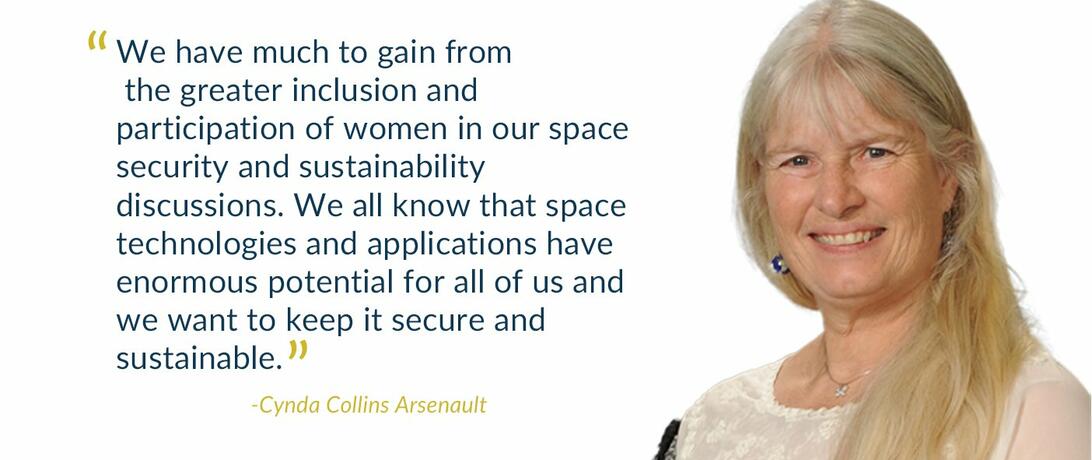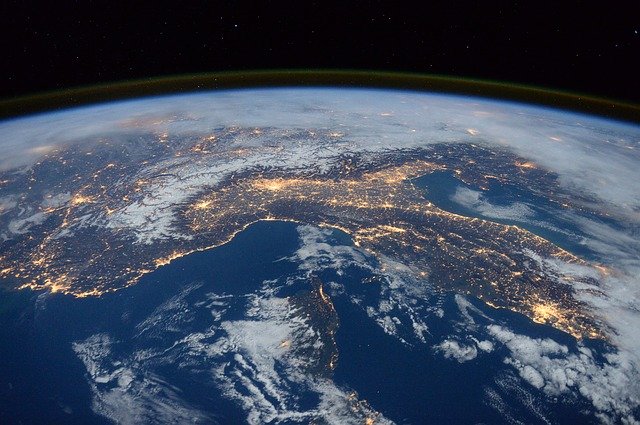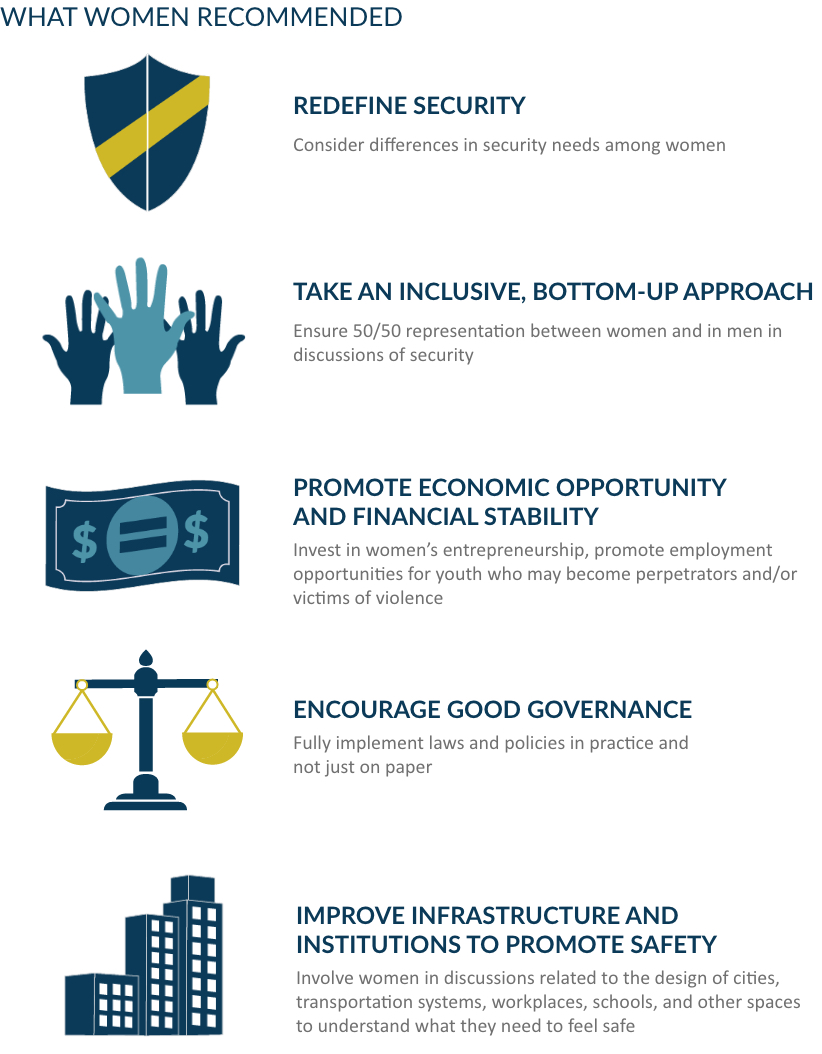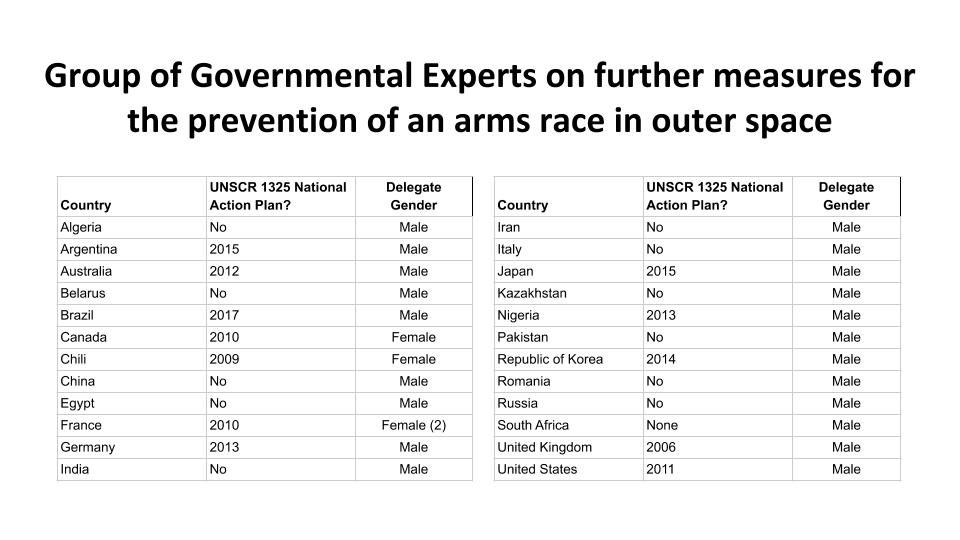
Women moderate extremism. Women help promote dialogue and build trust. Women bridge divides and mobilize coalitions.
Cynda Collins Arsenault is the founder of Our Secure Future: Women Make the Difference and works hand in hand with the team to provide strategic vision to the program as a part of One Earth Future. She is the co-founder, Board Chair and President of Secure World Foundation, an operating foundation working for the secure and sustainable use of outer space for the benefit of humanity. Ms. Collins Arsenault also co-founded and serves on the Boards of the Arsenault Family Foundation and One Earth Future. She has 45+ years of experience in non-profit work including peace and justice, criminal justice, mental health, disability rights and environmental issues. She is a member of the Women's Donor Network, Women Moving Millions, and The International Women’s Forum. She is the founder of Women Powering Change, an annual gathering of women working to create a better world. Ms. Collins Arsenault received her Bachelor of Arts in Sociology and Psychology at University of California Berkeley and her Master of Arts in Education from Colorado State University.
In October 2019, Ms. Collins Arsenault spoke at the First and Fourth Committees’ Joint Panel Discussion on Possible Challenges to Space Security and Sustainability. Her remarks are below.
The question I am asked most often is, “Why? Why do I give my money away, and why to space?” I believe the better question is: “who wouldn’t be inspired by this?”

This amazing view of the Earth transformed how we see ourselves, and calls for new ways of working together. And when you consider all the ways that space provides benefits to us here on Earth, I can’t think of a better way to invest my money for the future of all our children and their children. Space offers us a unique opportunity to learn about the Earth, to enhance our communication, and to create new systems for working together.
So why women?
Unfortunately, space also has some challenges to its security and sustainability, and if we are going to solve these challenges, we need to use all our resources. Why wouldn’t we want to utilize the skills and talents of 50% of our population?
There’s an added bonus here: the evidence shows that women add unique value to multilateral and international discussions. When women are present at negotiations and in security decision-making, the resulting agreement is more likely to be successful, citizens have greater trust in their government, and treaties last longer (in fact, they’re 35% more likely to last 15 years or more) and include greater benefits to society.
In general, women’s participation is a predictor of peace. Women moderate extremism. Women help promote dialogue and build trust. Women bridge divides and mobilize coalitions.
An example of this is the recent Long Term Sustainability Working Group, in which a number of delegations had women who met together informally to find creative solutions that helped reach consensus on the 21 Guidelines - a remarkable accomplishment for the space community!
Furthermore, in a global poll of women from 63 countries, conducted by Our Secure Future, we found that women look at security differently. Rather than focusing narrowly on security as it pertains to the nation-state, women focus instead on having knowledge, equal opportunity, freedom of expression, and participation. Specifically, this is what they recommend:

Which of these ideas wouldn’t apply to space security? Do you see how might they be applied to the development of a space traffic management system?
It’s easy to see how this evidence of women’s participation, the skills and traits that women bring to the table, and their recommendations can all be applied across the United Nations’ Sustainable Development Goals. And as we know, space can play a critical role in each of these. With the growing complexity of challenges such as artificial intelligence, new technologies, and the emerging space economy, what norms and behavior changes do we need to make for the protection and security of humankind? Space security discussions have been at an impasse. Bringing new perspectives and a variety of skill sets to the table will help us move forward to solve these complex problems.
But aspiration is not the same as implementation. A recent United Nations Institute for Disarmament Research (UNIDIR) study, entitled “Still Behind the Curve”, found that the United Nations General Assembly First Committee has had only one single female chair in 72 sessions, and the United Nations Committee on the Peaceful Use of Space (COPOUS) had its first female chair last year after 59 years. The International Astronautical Federation (IAF) is welcoming its first female President next year after 71 years. In fact, at any given intergovernmental meeting on disarmament, only one quarter of the participants are likely to be women and close to half of all delegations are likely to have no women at all (as evidenced by the low percentage of women who attend Group of Governmental Expert meetings (GGE)). These are the forums where important topics are being discussed. When women are missing, we lack a critical and valuable part of our population.
Luckily, we have some tools.
In 2000 the United Nations Security Council passed Resolution 1325 on Women, Peace and Security (WPS), which calls for increased participation and representation of women at all levels of decision making, and for a gender perspective to be applied to all policies. It also calls on all States to develop a National Action Plan on WPS to ensure implementation. To date 82 countries have developed a NAP, and if your country doesn’t yet have one, Our Secure Future can help you develop one. Last year the UN Secretary-General even set a new agenda for disarmament, titled Securing Our Common Future, which calls for women’s full and meaningful participation in decision-making, and declares that the “Secretary-General will work to achieve gender parity on all panels, boards, expert groups and other bodies established under his auspices in the field of disarmament.”
And yet, if you look at the recent GGE on prevention of an arms race in outer space, only 3 of 24 representatives were women – even from those countries with a National Action Plan. And contrast this with the success of the Long Term Sustainability guidelines which had greater - though not equal - female participation.

This is why I spend my resources and energy on space and women.
We have much to gain from the greater inclusion and participation of women in our space security and sustainability discussions. We all know that space technologies and applications have enormous potential for all of us and we want to keep it secure and sustainable.
As Van Gogh said “I know nothing with certainty, but the sight of the stars makes me dream.” Let’s not just dream together about the time the space community will benefit from the full participation of women in creating a secure and sustainable environment. Let us work together now to make it a reality.
Article Details
Published
Topic
Program
Content Type
Opinion & Insights